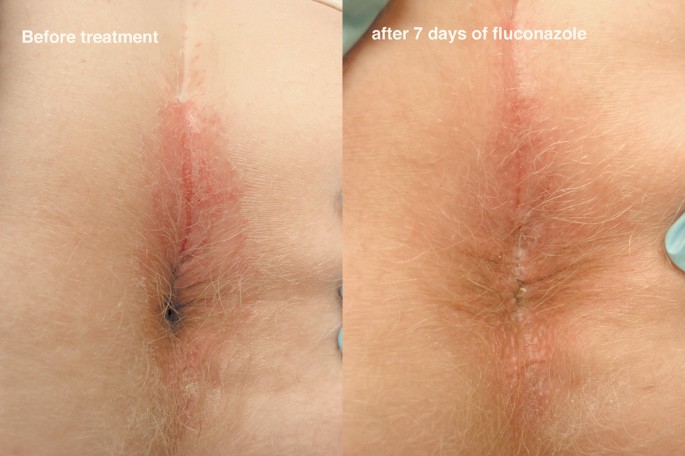Perianal irritation, medically known as pruritus ani, is a common yet distressing condition characterized by itching, burning, redness, or discomfort around the anal region. While often benign, persistent or chronic perianal irritation may indicate underlying dermatologic, infectious, systemic, or proctologic disorders. Addressing the root cause is essential for effective management and prevention of recurrence.

Common Causes of Perianal Irritation
A thorough understanding of the etiological factors is crucial for accurate diagnosis and treatment. The causes can be broadly classified into dermatological, infectious, gastrointestinal, and lifestyle-related categories.
Dermatological Causes
- Eczema and Contact Dermatitis: Triggered by soaps, wipes, or toilet paper containing fragrances and harsh chemicals.
- Psoriasis: Though rare in the perianal area, psoriasis can present with erythematous and scaly lesions.
- Lichen sclerosus: A chronic skin condition causing white, thin plaques and intense itching.
Infectious Causes
- Fungal Infections (Candidiasis, Dermatophytes): Moisture and warmth promote fungal growth, particularly in immunocompromised individuals.
- Bacterial Infections: Secondary infections from scratching or poor hygiene can exacerbate irritation.
- Parasitic Infestation: Pinworms (Enterobius vermicularis) are a common cause, especially in children.
- Sexually Transmitted Infections: HPV, herpes simplex virus, and syphilis can all manifest with perianal symptoms.
Gastrointestinal and Anorectal Disorders
- Hemorrhoids: Internal or external piles can lead to leakage and moisture, irritating the skin.
- Anal Fissures: Cracks in the anal lining may cause pain and itching.
- Fecal Soiling or Incontinence: Leads to chronic dampness and skin breakdown.
- Inflammatory Bowel Disease: Crohn’s disease may cause perianal abscesses and fistulas.
Lifestyle and Hygiene Factors
- Excessive Cleaning: Over-washing with soaps disrupts the skin’s natural barrier.
- Sweating and Friction: Common in overweight individuals or during physical activity.
- Tight Clothing and Prolonged Sitting: Increases warmth and moisture in the perianal area.
- Dietary Triggers: Spicy foods, caffeine, and alcohol can exacerbate symptoms.
Symptoms and Clinical Manifestations
Perianal irritation may present with the following signs and symptoms:
- Persistent or intermittent anal itching, often worse at night
- Redness or erythema around the anus
- Burning or stinging sensation
- Excoriations or breaks in the skin due to scratching
- Secondary infections leading to oozing or crusting
- Psychological distress, embarrassment, and sleep disturbances
Diagnostic Approach to Perianal Irritation
Proper diagnosis involves a combination of history-taking, physical examination, and selective investigations.
Essential Components of Evaluation
- History of symptom onset, duration, aggravating factors
- Hygiene practices and use of irritants (soaps, wipes)
- Dietary intake and bowel habits
- Sexual history and exposure risk
- Examination for fissures, hemorrhoids, discharge, and perianal skin integrity
Investigations
- Stool examination: Rule out parasitic infections.
- Skin culture and KOH prep: Detect fungal or bacterial overgrowth.
- Patch testing: Identify allergens in contact dermatitis.
- Anoscopy or colonoscopy: Reserved for persistent or unexplained cases.
Effective Treatment Strategies for Perianal Irritation
1. General Measures
| Action | Description |
|---|---|
| Gentle Cleaning | Use water or non-irritant cleansers after bowel movements |
| Pat Drying | Avoid rubbing; use soft towels to dry the area |
| Avoid Irritants | Refrain from perfumed products and harsh soaps |
| Cotton Underwear | Encourages ventilation and moisture control |
| Manage Bowel Habits | Prevent constipation or diarrhea through fiber intake |
2. Pharmacological Treatments
Topical Therapies
- Zinc oxide ointments: Create a protective barrier and soothe inflammation.
- Hydrocortisone 1% cream: Short-term use for inflammation and itching.
- Antifungal creams: Clotrimazole or miconazole for confirmed fungal infections.
- Antihistamines: Oral agents for nighttime itching relief.
Oral Medications
- Antiparasitic agents: Mebendazole or albendazole for pinworm infections.
- Antibiotics: For secondary bacterial infections confirmed by culture.
3. Treatment of Underlying Conditions
- Hemorrhoids: Topical preparations, warm sitz baths, or surgical intervention if necessary.
- Fissures: Nitroglycerin ointment or lateral internal sphincterotomy for chronic cases.
- Dermatologic conditions: Require long-term dermatology follow-up.
Prevention of Recurrent Perianal Irritation
- Maintain optimal hygiene without over-washing
- Avoid known dietary and chemical irritants
- Regularly change undergarments and keep the perianal area dry
- Treat and control systemic or anorectal diseases
- Educate patients on appropriate toilet hygiene
Complications Associated with Chronic Perianal Irritation
- Lichenification: Thickened, leathery skin due to chronic scratching
- Secondary Infection: Bacterial or fungal colonization of broken skin
- Psychological Distress: Impact on social and sexual life
- Scarring and Skin Discoloration: Long-term consequence of inflammation
When to Seek Specialist Consultation
- Persistent symptoms despite appropriate home care
- Signs of infection such as pus, fever, or severe pain
- Suspicion of sexually transmitted infections or immunosuppressive conditions
- Suspected malignancy (unhealing lesions or bleeding)
Frequently Asked Questions
Q1. What is the most common cause of perianal irritation?
Irritant contact dermatitis from over-cleaning or harsh soaps is among the most frequent causes.
Q2. Is perianal irritation a sign of cancer?
Not typically. However, persistent or unhealing lesions require evaluation to rule out malignancy.
Q3. How long does it take to treat perianal irritation?
With proper care, mild cases resolve within days to weeks. Chronic cases may need extended management.
Q4. Can diet affect perianal itching?
Yes, spicy foods, alcohol, caffeine, and acidic foods can exacerbate symptoms in some individuals.
Q5. Can I use baby wipes for cleaning?
Most baby wipes contain alcohol or fragrances, which may worsen irritation. Use only fragrance-free, water-based wipes if necessary.